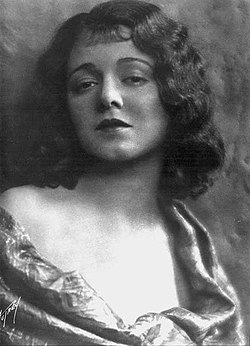| The Blue Eagle | |
|---|---|
 Theatrical poster to The Blue Eagle (1926) | |
| Directed by | John Ford (uncredited) |
| Written by | Gordon Rigby (scenario) Malcolm Stuart Boylan (titles) |
| Based on | "The Lord's Referee" by Gerald Beaumont |
| Produced by | John Ford |
| Starring | George O'Brien Janet Gaynor |
| Cinematography | George Schneiderman |
| Distributed by | Fox Film Corporation |
Release date |
|
Running time | 58 minutes |
| Country | United States |
| Language | Silent (English intertitles) |
The Blue Eagle is a 1926 American action film directed by John Ford. [1]
